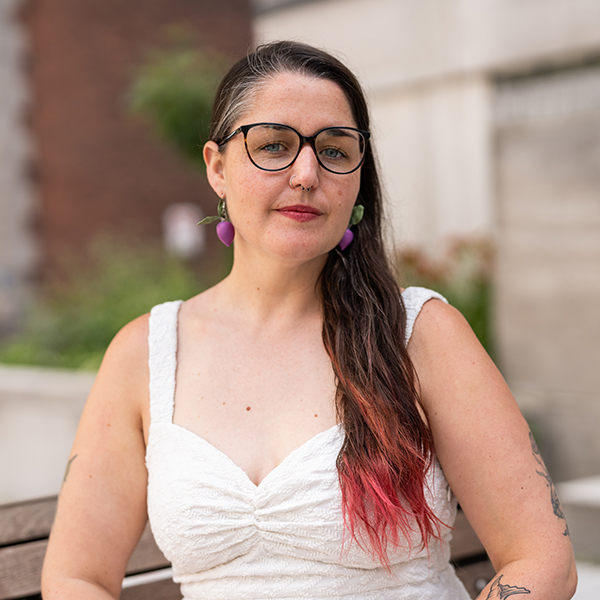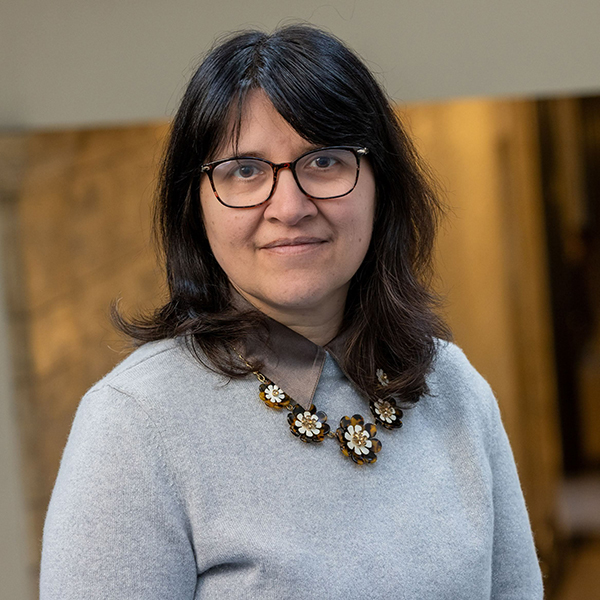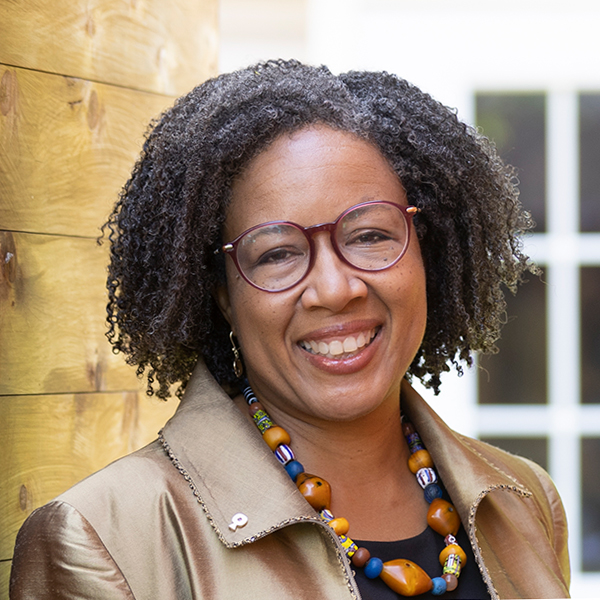Associate Professor Debra Thompson, holder of the Canada Research Chair in Racial Inequality in Democratic Societies, joined McGill’s Department of Political Science in the fall of 2020 after having previously taught at the University of Oregon, Northwestern University in Chicago, and Ohio University.
Her new book The Long Road Home: On Blackness and Belonging draws on her personal and professional trajectory to explore the intersection of Black identities and communities, racism and inequality, in Canada and the United States.
Before moving to the U.S. to pursue her academic career, Thompson lived in Canada.
“During the first three decades of my life in Canada, I was often the Only One,” she writes in the book. “The only Black student in any class, grade, and school. The only Black kid on the soccer team. The only Black employee in the branch of Indian and Northern Affairs Canada, where I worked for several years before leaving the civil service for a life in academia. The only Black graduate student in the political science department. The only Black person in any space, anywhere, anytime, everywhere, every time.”
In a blurb for the book, which made its debut on the Toronto Star’s bestsellers list for Canadian non-fiction shortly after it was published, Kamal Al-Solaylee, the award-winning author of Brown, describes it as “a powerful chronicle of race and belonging [that] slides between political analysis and personal truths with clarity, purpose and heart.”
On September 21, The Long Road Home was named among the five finalists for one of Canada’s top book awards, the Hilary Weston Writers’ Trust Prize for Nonfiction. Thompson recently spoke to the McGill News about the book.
This is a book on Blackness, racism and community that incorporates plenty of academic analysis into a memoir of your academic travels. Why did you adopt this approach?
That wasn’t so much of a deliberate choice, as it was happenstance and luck. I was really trying to think through the relationship between race and democracy and belonging across this Canada/US border that Black people have crossed for generations. And how could I distill a literature, which in the social sciences goes back more than 100 years, into something readily accessible that will resonate with people and will help them think through these complicated issues in a nuanced, evidence-based and still dynamic way.
It is advertised as a memoir, which makes me deeply uncomfortable – I don’t think that I’m particularly interesting. But over the many years that I’ve been teaching, I’ve learned that the more concrete you make abstract concepts, like democracy and liberalism and authoritarianism and belonging and migration, the more resonant students find these concepts, and the more they can see how the abstract actually affects their day to day lives, how they move through the world, and who they want to be.
You focus on diaspora, and an ambiguity you discern in this idea.
The idea of diaspora has been part of how African-descended people imagine that we are connected to each other, sharing this familial sense of belonging, even across vast differences and time and geographic locations and political commitments.
With the idea of diaspora, I was trying to think about it not just as all of those nodes that connect us, but also all of those frictions and translations and ambiguities. There’s reason to revel in ambiguity; we actually don’t need to have a definition of what it means to be Black that holds across all time and all space for all people. There is something incredible and beautiful and creative about a person or a people in flux. That was what I was trying to get at.
Home is an important but ambiguous concept in this work.
I think home has always been a complex idea, especially for people of African descent. We find our origins in the transatlantic slave trade; we did not come to this continent willingly, and most of us perished along the way.
I’ve always found so curious the idea that “home” is uncomplicated. If you ask undergrads “Where do you live?,” they’ll say Montreal, but if you ask, “Where’s your home?,” most of them aren’t going to say Montreal because home isn’t just about where you are, it’s about something else: it’s about your people, who claims you and who you claim as your own. It’s about the place where you become who you want to be.
In the book I think about whether or not it’s possible to find home in movement. We think about movements as being in part about dislocating oneself and maybe moving from one home to another, but I’m asking whether or not movement itself can be a space of reimagining what it means to belong.
Family and community seem central to this book. You recall Cornelius and Rebecca Thompson, your ancestors who fled the U.S. and crossed the border into Canada in 1850, and you refer to your father as the conscience of this book. There’s also a movement from being the only Black kid in a suburban Toronto classroom to finding a large Black community in Chicago. Family becomes a term that seems very solid but also very broad and expansive.
Kinship and community have been an important aspect of Black families in part because the institution of slavery was predicated on the destruction of family life. It stole children from parents and sought to prevent enslaved people from forming intimate bonds. So, in the face of this ruinous oppression, we have had to make ties of intimacy and sanctuary and loyalty and trust.
I think that’s been key to Black survival for generations. In contrast to some of the dominant discourses we’ve heard for years about the pathological nature of Black families, like absentee black fathers – stereotypes which are not borne out by evidence – it’s important to have a more expansive idea of kinship that we can understand as networks of care and concern. And to recognize the hope and revelry and joy that define the Black experience, alongside oppression and domination and racism and all the bad stuff.
I didn’t want to write a book that was just about racism. I want to make sure that there was a serious engagement with joy and resilience and anxiety and all the things that go into making life.
You write about how influential your students have been in helping you formulate your ideas.
I’ve been doing research for a long time now, but I never go into my classroom thinking that I’m an expert and my students are non-experts. I’m interested in what my students have to teach me – and they’ve taught me a lot.
I moved to Chicago just as Black Lives Matter was emerging and solidifying, so I developed a course on it; my students often came up with ideas that I hadn’t thought of and which I would follow up through more research. And in writing this book, I would often go back through my class notes from my McGill honours seminar on the politics of race. The questions my students raised or points they made I then tried to address in the book.
How have you found your McGill experience?
My book has a chapter on Montreal with some critiques, but Montreal is an incredible city and I’m thrilled to be here. McGill and my department have been very welcoming. It’s so fun to teach McGill students: they all show up, they all do the readings, they all come really excited to talk, they update me on their lives after the course is finished… so teaching has been a pleasure.
In addition, McGill’s reputation brings a certain social capital that has allowed me to do other kinds of work that are important to me, like talking to government agencies and private sector organizations and non-profits about racism. I’m quite grateful for that.
What impact would you like your book to have?
I hope that it resonates for people, especially young people of colour. I hope young Black people read it and feel “I’m not the only one. This speaks to me in ways I haven’t had access to.”


